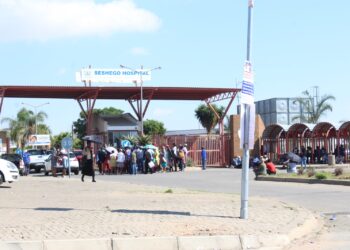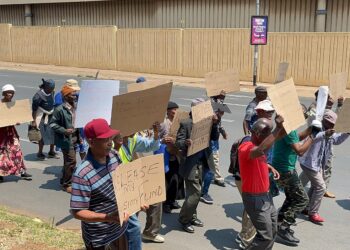By: Omphile Maebane
Allegations are mounting over the controversial Alabuga Start Programme in Russia, launched in 2022 under the Alabuga Special Economic Zone in Tatarstan. Marketed as a work-study opportunity in hospitality, catering, and manufacturing, the initiative reportedly placed young women in drone assembly factories instead — raising alarm over human trafficking and exploitative labour practices.
According to the Business & Human Rights Resource Centre, at least 200 young African women, alongside peers from Asia and Latin America, ended up assembling military drones in Tatarstan. Many only discovered the truth after their arrival. Some of their co-workers were reportedly Russian vocational students as young as 15.
South African social media influencers, including Cyan Boujee and Seemah, promoted the programme on TikTok and Instagram, encouraging women to apply with promises of free travel, housing, stipends, and skills development.
One South African applicant, Sharon Khoya (20), recounted her experience:
“During the application they asked for my personal information, medical records, home address, and images. They even said I should not worry about visas or transport money. They promised to provide everything as long as I made it to Russia as soon as possible.”
The Department of International Relations and Cooperation (DIRCO) has urged extreme caution. Clayson Monyela, spokesperson for DIRCO, said:
“Human trafficking syndicates are luring people into all sorts of illegal activities under slave-like conditions. If something looks too good to be true, get a second opinion. Do not just apply. Contact DIRCO or any of our embassies.”
Initially, influencers claimed ignorance about the nature of the work. Cyan Boujee said:
“I didn’t know that the programme was fake and had such allegations circulating on social media about it. I wouldn’t have involved myself with it in the first place if I had known.”
However, criticism of her involvement intensified online. Following heavy backlash, Cyan released a media statement containing a leaked voice note in which she described the conditions some participants endured:
“They starved me. There was a girl that cried when asked about her accommodation and their living conditions.”
The Ministry in the Presidency for Women, Youth and Persons with Disabilities has since warned young South Africans against falling prey to job scams abroad.
“So-called work opportunities advertised on social media for positions in Russia are not facilitated with any government intervention,” the ministry said in a statement. “We urge young people to always verify posts promising jobs abroad before committing.”
The controversy surrounding Alabuga underscores the vulnerability of young South Africans in a climate of high unemployment, where opportunities too often come with devastating risks.
















